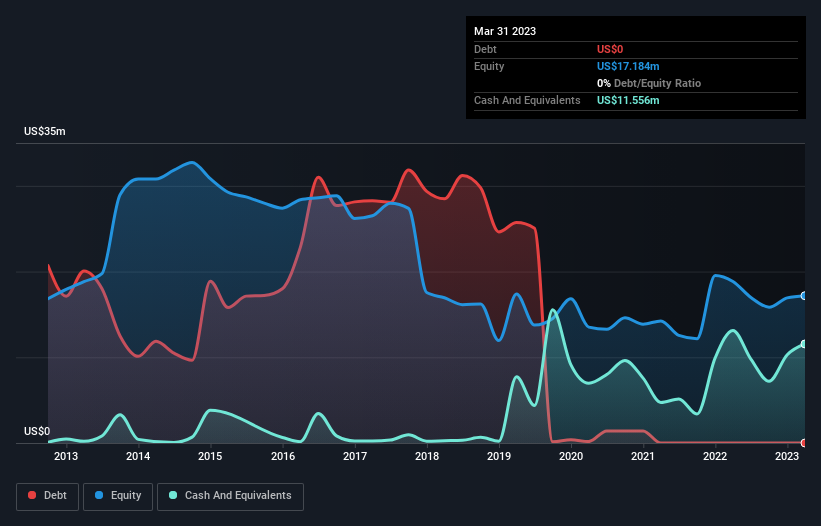Here's Why We're Watching Pioneer Power Solutions' (NASDAQ:PPSI) Cash Burn Situation
Just because a business does not make any money, does not mean that the stock will go down. For example, biotech and mining exploration companies often lose money for years before finding success with a new treatment or mineral discovery. But while history lauds those rare successes, those that fail are often forgotten; who remembers Pets.com?
So, the natural question for Pioneer Power Solutions (NASDAQ:PPSI) shareholders is whether they should be concerned by its rate of cash burn. In this article, we define cash burn as its annual (negative) free cash flow, which is the amount of money a company spends each year to fund its growth. First, we'll determine its cash runway by comparing its cash burn with its cash reserves.
See our latest analysis for Pioneer Power Solutions
How Long Is Pioneer Power Solutions' Cash Runway?
A company's cash runway is the amount of time it would take to burn through its cash reserves at its current cash burn rate. As at March 2023, Pioneer Power Solutions had cash of US$12m and no debt. Importantly, its cash burn was US$7.9m over the trailing twelve months. So it had a cash runway of approximately 17 months from March 2023. While that cash runway isn't too concerning, sensible holders would be peering into the distance, and considering what happens if the company runs out of cash. Depicted below, you can see how its cash holdings have changed over time.
How Well Is Pioneer Power Solutions Growing?
One thing for shareholders to keep front in mind is that Pioneer Power Solutions increased its cash burn by 1,442% in the last twelve months. But the silver lining is that operating revenue increased by 38% in that time. Taken together, we think these growth metrics are a little worrying. While the past is always worth studying, it is the future that matters most of all. So you might want to take a peek at how much the company is expected to grow in the next few years.
How Easily Can Pioneer Power Solutions Raise Cash?
Even though it seems like Pioneer Power Solutions is developing its business nicely, we still like to consider how easily it could raise more money to accelerate growth. Companies can raise capital through either debt or equity. Commonly, a business will sell new shares in itself to raise cash and drive growth. By comparing a company's annual cash burn to its total market capitalisation, we can estimate roughly how many shares it would have to issue in order to run the company for another year (at the same burn rate).
Pioneer Power Solutions' cash burn of US$7.9m is about 12% of its US$64m market capitalisation. As a result, we'd venture that the company could raise more cash for growth without much trouble, albeit at the cost of some dilution.
How Risky Is Pioneer Power Solutions' Cash Burn Situation?
On this analysis of Pioneer Power Solutions' cash burn, we think its revenue growth was reassuring, while its increasing cash burn has us a bit worried. Even though we don't think it has a problem with its cash burn, the analysis we've done in this article does suggest that shareholders should give some careful thought to the potential cost of raising more money in the future. Its important for readers to be cognizant of the risks that can affect the company's operations, and we've picked out 2 warning signs for Pioneer Power Solutions that investors should know when investing in the stock.
Of course Pioneer Power Solutions may not be the best stock to buy. So you may wish to see this free collection of companies boasting high return on equity, or this list of stocks that insiders are buying.
Have feedback on this article? Concerned about the content? Get in touch with us directly. Alternatively, email editorial-team (at) simplywallst.com.
This article by Simply Wall St is general in nature. We provide commentary based on historical data and analyst forecasts only using an unbiased methodology and our articles are not intended to be financial advice. It does not constitute a recommendation to buy or sell any stock, and does not take account of your objectives, or your financial situation. We aim to bring you long-term focused analysis driven by fundamental data. Note that our analysis may not factor in the latest price-sensitive company announcements or qualitative material. Simply Wall St has no position in any stocks mentioned.

